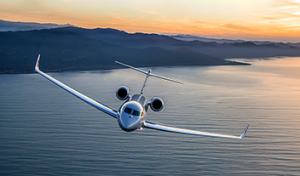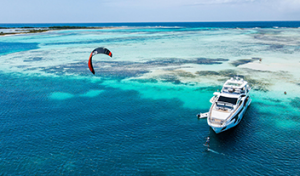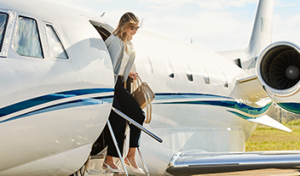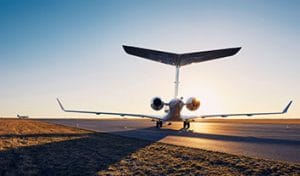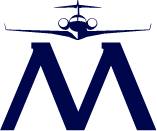What makes great pilots stand out are their professional approach to the health of their crew, their passengers, and themselves. For all pilots, good health is more than a lifestyle choice, it’s mandated by federal regulations, specifically addressed in government-issued advisory circulars and various training curricula. In short, pilots must conduct a thorough self-evaluation, ensuring they’re in top physical condition before every flight. But how exactly do they minimize the impact of their own possible illnesses on their crew, their passengers, and themselves-especially during flu season? Spoiler alert: They’re always prepared.
One reason why commercial and private jet pilots, as a breed, are very proud professionals is because they must be proficient in several difficult subjects. Pilots are routinely tested and re-tested on their ability to apply their broad range of knowledge to real-world scenarios. They may not continue to exercise the privileges of their airman certificates (licenses) unless they demonstrate that their proficiency meets rigorous standards.
Knowledge of aerospace medicine allows pilots to minimize the impact of the cold and flu on themselves and others. This subject helps pilots prepare for the demands of high-performance jet operations. They master topics like high-altitude physiology, effects of fatigue, mental and physiological evaluation and assessment, and more to stay prepared for adverse emergency conditions. Here are five flu season tips from a professional pilot to stay healthy during your next trip.
•Get a Quote: Book a Private Jet Charter with Magellan Jets
1. Eat Well
Adopt a non-inflammatory diet. Commercial and private jet pilots learn early in their careers about the importance of nutrition. Junk food high in fat and sugar makes them mentally soft and their performance suffers. Pilots should concentrate on eating greens and limited while satisfying sweet cravings with fresh fruit and vegetables. Proper nourishment maintains a state of low or no inflammation in the body, better preparing it to defend against known and unknown viruses. Professional pilots must on commercial flights or private jet charters pass rigorous physicals at least every six months. As a result of the frequent check-ins, they tend to do better than most in sticking with healthy diets.
2. Drink mindfully
Drink water, slow and steady. Period. Limit caffeine to only when necessary. Top-of-their-game pilots aboard commercial and private jet aircraft occasionally rely on doses of coffee or tea. In order to defend itself from invading pathogens and viruses, a body must be hydrated, not inflamed. The same advice your doctor gives you when you’re sick-take in plenty of clear fluids-is what professional pilots do every day to cope with the impact of high-altitude physiology and the likely encounters with sick people they face every day.
3. Move your body every day
Every healthy and resilient pilot who flies commercial or private jet charters exercises at least once a day. We are not implying that every pilot is ready for an Iron Man competition, but they do try to get their steps in, and most do something to elevate their heart rate for 20 minutes or more daily. This ensures not only a favorable result when their mandated EKG results are sent to the FAA each year, but it also positions their immune systems to react better to foreign invaders. A healthy cardiovascular system speeds antibodies and white blood cells to where they are needed faster and more efficiently. They also help the body produce more defensive mechanisms when needed.
•Magellan Jets President Talks Coronavirus Situation with The Wall Street Journal
4. Sleep well and plan rest periods
Whether it’s flu season or not, good sleeping habits are the most important factor when keeping professional pilots healthy. Many pilots experience disruptions to their circadian rhythms. Healthy pilots ensure they get at least eight hours of sleep. They try to avoid unnecessary use of caffeine, alcohol, and activities that disrupt their sleep. They are the people in your life that use room-darkening curtains and turn away from their screens at least one hour before bed time. The very first thing your doctor tells you to do when you get sick is to go home and rest (like a pilot does every day). Pilots who fly commercially or on private jets treat sleeping time as precious. They may get cranky when anything prevents proper rest-a justified attitude for someone held accountable for others’ safety and welfare.
5. See the doctor and keep up on required immunizations
The theory here is that if you modify your lifestyle to behave like a top-notch professional aviator who almost never gets sick, then you too will be ready to survive your next encounter with the flu like a pro. Before making any changes to your diet or lifestyle, you must first see your doctor. Professional pilots see medical professionals at least six times a year. This includes annual physicals and eye exams, plus visits at least twice a year with dentists and a local FAA designated medical examiner. Partner with your doctor to develop the right plan for you, as well as to stay up to date on all required immunizations.
Get on board with these flu season tips to take control of your health like a true pro.
For more information on how to stay healthy while flying or to consult with a Magellan Jets private aviation professional, visit us at magellanjets.com or call 877-550-JETS.







